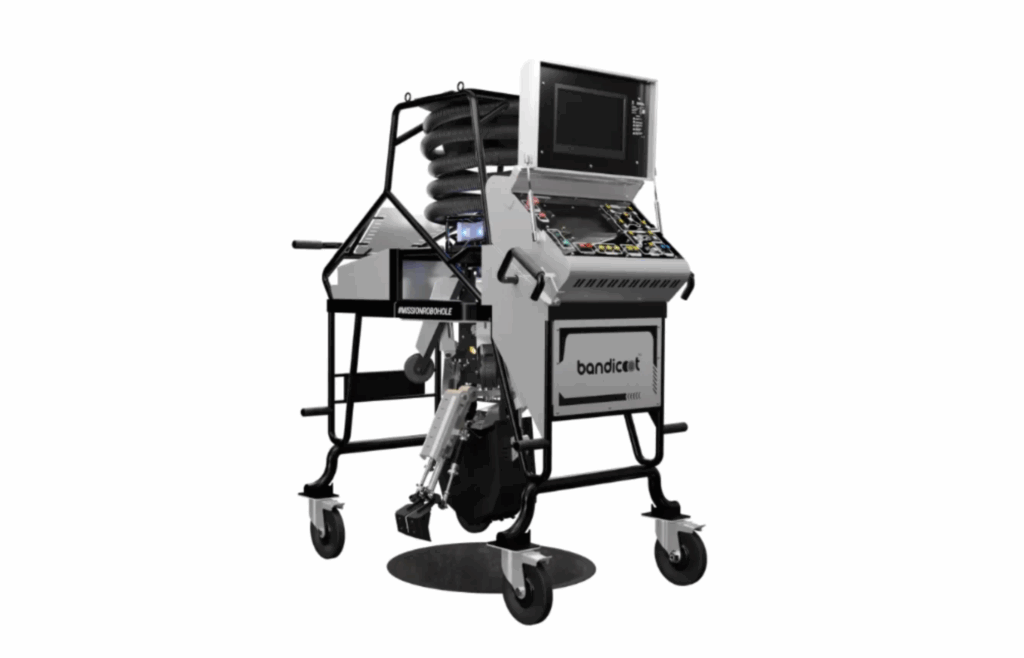
Part 9 of Tech That Matters
In India, 377 workers lost their lives to manual scavenging between 2019 and 2023. Despite laws banning manual scavenging since 1993, the practice persists, hidden in informal and outsourced jobs. Meanwhile, as states continue to declare themselves manual scavenging-free, manual scavenging deaths continue to make it to the news headline. Amidst such denial from the states, the real numbers of manual scavenging deaths remains unknown. This dangerous work, tied to social stigma, demands urgent solutions. In this week’s Tech That Matters segment, we will talk about Genrobotics, a Kerala-based startup, is tackling this crisis with innovative technology. Their Bandicoot robot is transforming sanitation, saving lives, and offering dignity to workers.
A Deadly Problem Persists
Manual scavenging is a grim reality in India. Workers enter toxic, confined spaces to clear human waste. Poisonous gases, lack of oxygen, and falls claim lives yearly. A 2024 Rajya Sabha report highlighted the ongoing tragedy, despite legal bans. Many workers, often from marginalized communities, face discrimination and lack alternatives. The system fails them, with inadequate enforcement and limited access to safer job options. A company like Genrobotics offers hope.
Genrobotics: A Beacon of Innovation
Genrobotics, founded in 2017 in Trivandrum, Kerala, is India’s leading robotics company. Four young engineers — Vimal Govind M.K., Arun George, Nikhil N.P., and Rashid K. — started it to address societal challenges. Their flagship creation, Bandicoot, is the world’s first manhole-cleaning robot. It eliminates the need for workers to enter dangerous sewers. By combining robotics and AI, Genrobotics ensures safer, more dignified work. The company aligns with India’s Swachh Bharat and Make in India initiatives, proving technology can drive social good.
The Birth of Bandicoot
The idea for Bandicoot sparked in 2016 after a tragic manhole accident in Kerala. Three workers died, prompting the Genrobotics team to act. Initially, they worked on exoskeleton technology for soldiers. However, a conversation with Kerala’s IT Secretary shifted their focus. They studied manholes, spoke with sanitation workers, and drew inspiration from nature. The bandicoot rat, adept at navigating sewers, inspired the robot’s design. With funding from Kerala Startup Mission, they launched the first Bandicoot in 2018, transforming sanitation work.

Genrobotics’ Life-Saving Solutions
Bandicoot is a game-changer for sanitation. Its spider-like drone unit, equipped with four legs, grips manhole walls securely. A robotic arm picks, grabs, and shovels waste efficiently. High-resolution cameras and gas sensors allow remote operation, keeping workers safe. The Bandicoot Mini, a solar-powered compact version, navigates narrow streets. Mobility Plus, a vehicle-mounted model, automates waste disposal. Additionally, Wilboar cleans industrial spaces like petroleum tanks. These innovations have reached 19 Indian states and four countries, impacting over 3,300 workers.
Gaps in the System
Despite Bandicoot’s success, challenges remain. Manual scavenging extends beyond manholes. Dry toilets, cleaned daily by millions, lack technological solutions. Government tenders often favor low-cost bids, limiting innovation. Many municipalities lack the budget or mindset to adopt advanced robotics. Training programs are vital, yet not all workers transition to robot operators. Scaling solutions like Genrobotics requires more investment and policy support to address the broader issue.
A Future Free from Manual Scavenging
Genrobotics is offering more than robots. It reduces health risks, prevents deaths, and empowers workers as robot operators. During COVID-19, it minimized virus transmission through clogged sewers. If deployed nationwide, Bandicoot could eradicate manual scavenging, aligning with India’s vision of a cleaner, safer future. Partnerships with investors like Anand Mahindra and initiatives like Startup India fuel its growth. By transforming manholes into “roboholes,” Genrobotics is rewriting sanitation’s story, offering dignity and hope to countless workers.
